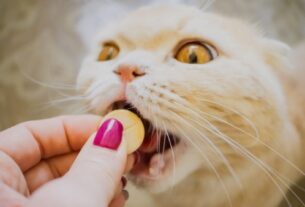Equine Glandular Gastric Disease (EGGD) has become a pressing concern among horse owners and professionals alike. Understanding its intricacies is paramount for ensuring the well-being of our equine companions, although there are still a lot of areas where further research is required. EGGD affects the glandular portion of the horse’s stomach, leading to discomfort and poor performance.
The equine stomach is divided into two distinct regions: the glandular and the non-glandular (or squamous) portions. The glandular region, located toward the bottom of the stomach, is responsible for secreting mucus and bicarbonate, crucial for buffering stomach acid and protecting the stomach lining. However, this area is also susceptible to damage from gastric acid exposure if these protection systems are compromised, leading to EGGD.
Recognising the signs of EGGD is vital for early intervention and veterinary input. Common symptoms include changes in behaviour such as a decreased appetite, irritability, and poor performance. However, these signs can be subtle and easily overlooked. Diagnosis can only be confirmed via a gastroscopy, where a veterinarian examines the stomach lining using an endoscope.
The Role of Nutrition in Managing EGGD
Whilst there is no evidence-based link between diet and EGGD, the advice is still to implement the same feeding management as for Equine Squamous Gastric Disease (ESGD) which includes reducing starch intake and feeding plenty of fibre. An alfalfa-based horse feed may offer several benefits in this regard, as it is a useful way to supply highly digestible fibre and slow-release energy whilst being low in sugar and starch.
Alfalfa is renowned for its high-quality protein content, essential vitamins, and minerals, making it an ideal component of equine diets. It is high in calcium which can aid in buffering stomach acid, and this may help to reduce the risk of gastric ulcers.
Alongside alfalfa, a balanced diet rich in fibre and low in starch is recommended for managing EGGD. Providing frequent, small meals throughout the day is preferable when it comes to supporting digestive health. Furthermore, incorporating supplements such as yeast and prebiotics should support a healthy microbial balance in the gut.
Management Strategies for EGGD
Equine Glandular Gastric Disease (EGGD) demands a multifaceted approach to management beyond dietary interventions.
Understanding Stress and Its Impact
There is increasing evidence that there is an association between stress and EGGD, as this may tigger physiological responses that exacerbate gastric issues. Chronic stress can potentially affect the horse’s immune system, making them more susceptible to gastrointestinal disturbances. Recognising and mitigating stressors is crucial for managing EGGD effectively.
Promoting Mental Wellness
Implementing stress-reduction techniques is essential for promoting mental wellness in horses. Providing ample turnout time allows horses to engage in natural behaviours, such as grazing and socialising, which may help to alleviate anxiety and promote relaxation. Companionship can help to reduce stress levels, as horses are herd animals that thrive on social interaction. Pairing compatible equine companions or allowing horses to interact over fences can provide much-needed emotional support. Ensuring continuity of carers and reviewing any practices on the yard that may be distressing for the horse are key.
Environmental Enrichment
Enriching the horse’s environment may also contribute to stress reduction and mental stimulation. Offering access to varied terrain, such as pasture turnout with hills or wooded areas, encourages movement and exploration, promoting physical and mental well-being. Providing stimuli, such as toys, puzzles, or sensory objects, can help with boredom and reduce stress levels. Creating a stimulating and enriching environment fosters a sense of security and contentment, potentially reducing the likelihood of stress-related gastric issues.
The Importance of a Suitable Exercise Regime
A suitable exercise regime is a cornerstone of equine management, with profound implications for digestive health. Engaging in consistent, regular exercise can help to stimulate gastrointestinal motility, facilitating the efficient movement of food through the digestive tract. Furthermore, exercise can help to promote overall physical fitness and mental well-being. However, for horses with EGGD, providing at least two rest days a week is recommend.
Prioritising Veterinary Care
Routine veterinary care is indispensable for maintaining equine health and detecting any potential issues early on. Dental examinations are particularly crucial, as dental abnormalities can hinder proper chewing and digestion, as well as result in a reduced forage intake, which may predispose the horse to gastric disturbances. Veterinary monitoring also allows for timely intervention and adjustments to management strategies based on the individual needs of the horse.
Nurturing Equine Gastric Health
Equine Glandular Gastric Disease poses significant challenges to horse owners and professionals. By prioritising nutrition from horse feed that contains alfalfa, and creating a supportive environment for our equine companions, we can promote digestive health and enhance their overall quality of life.



